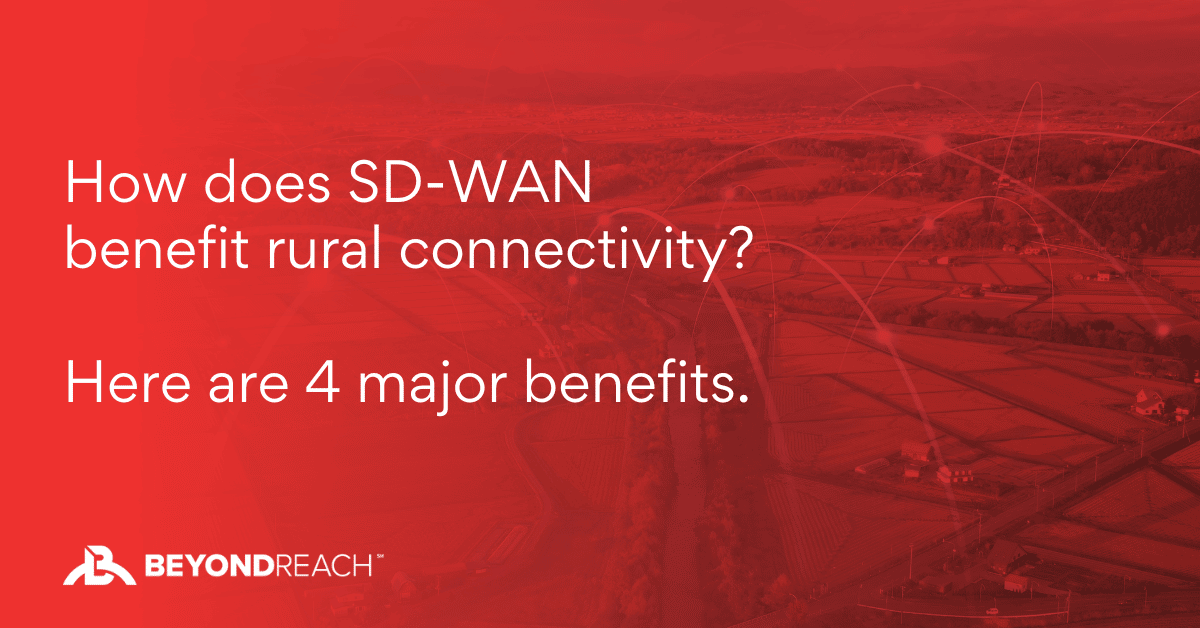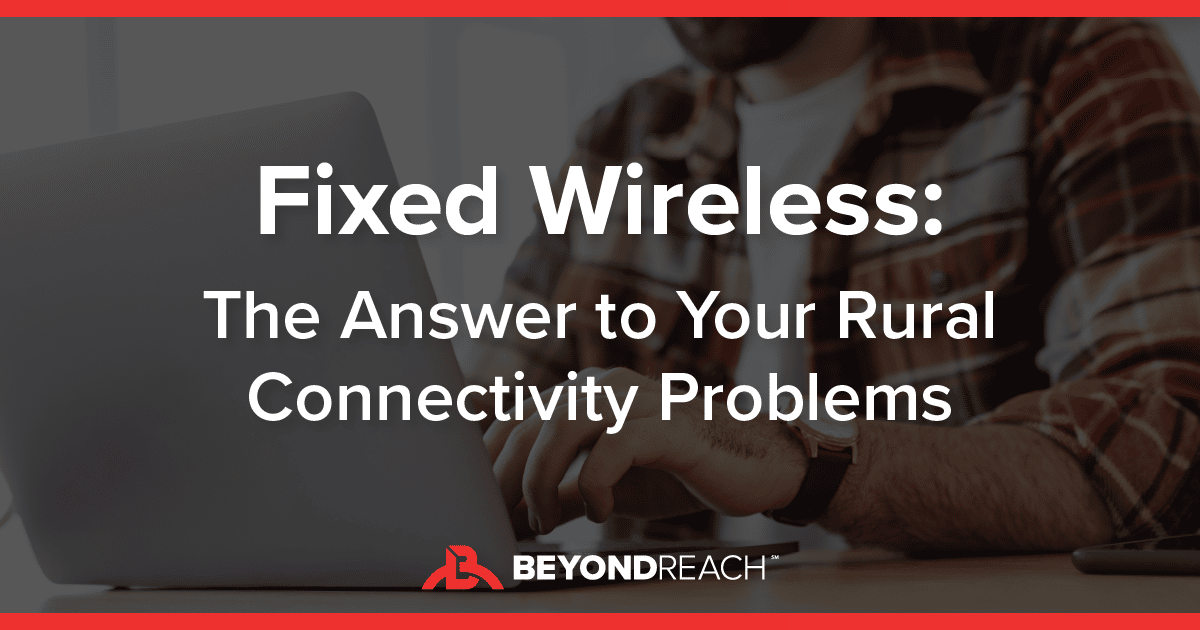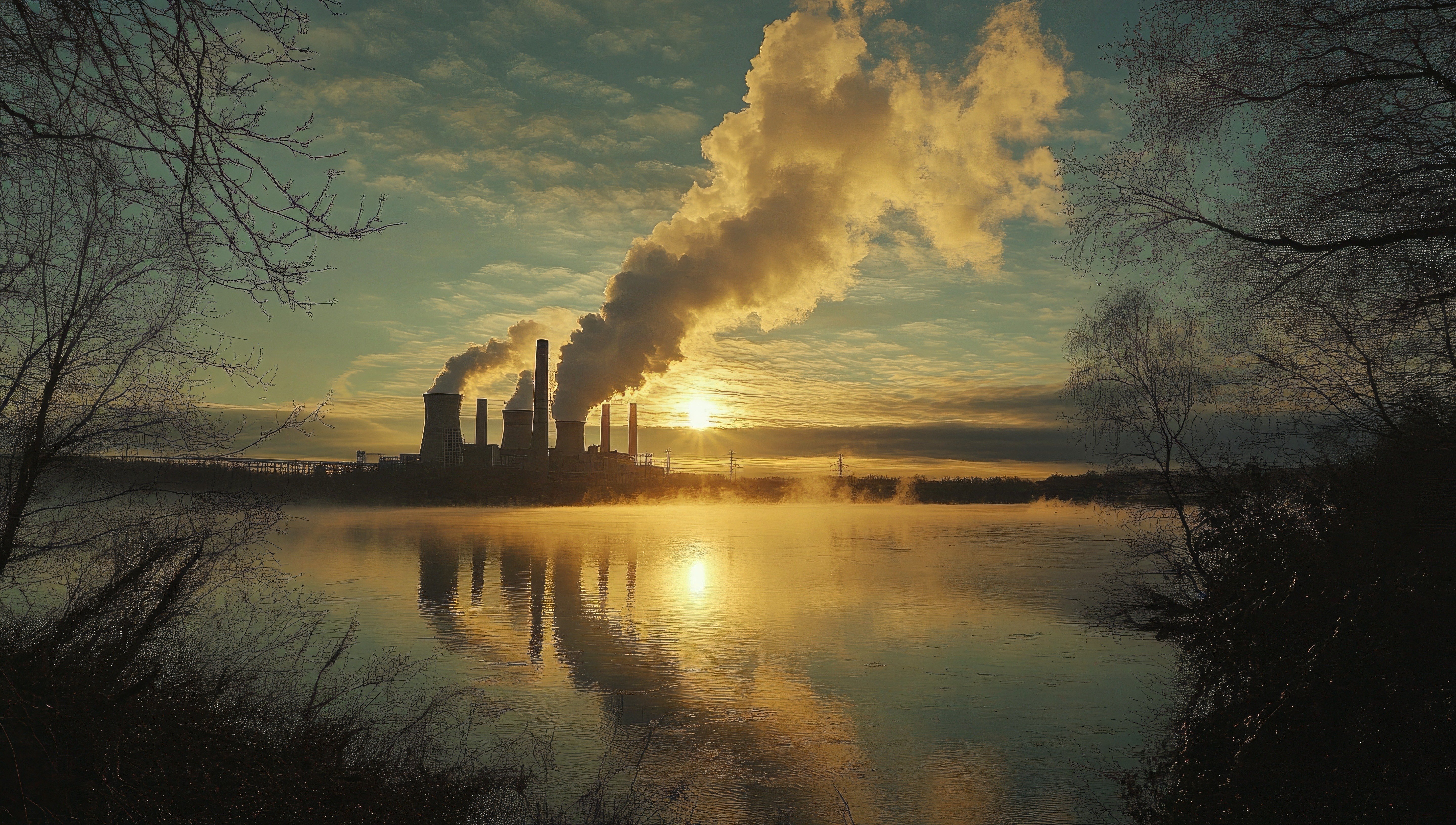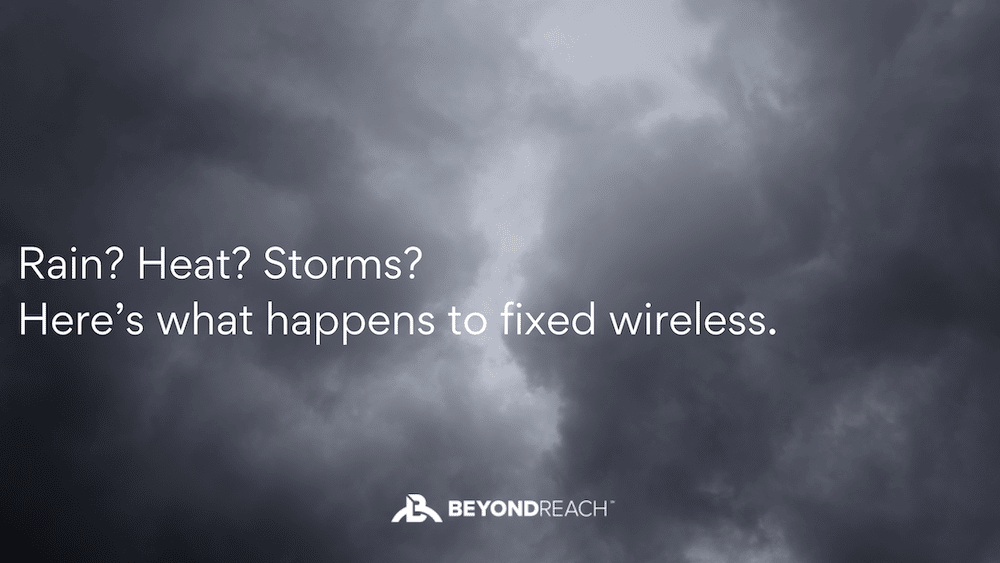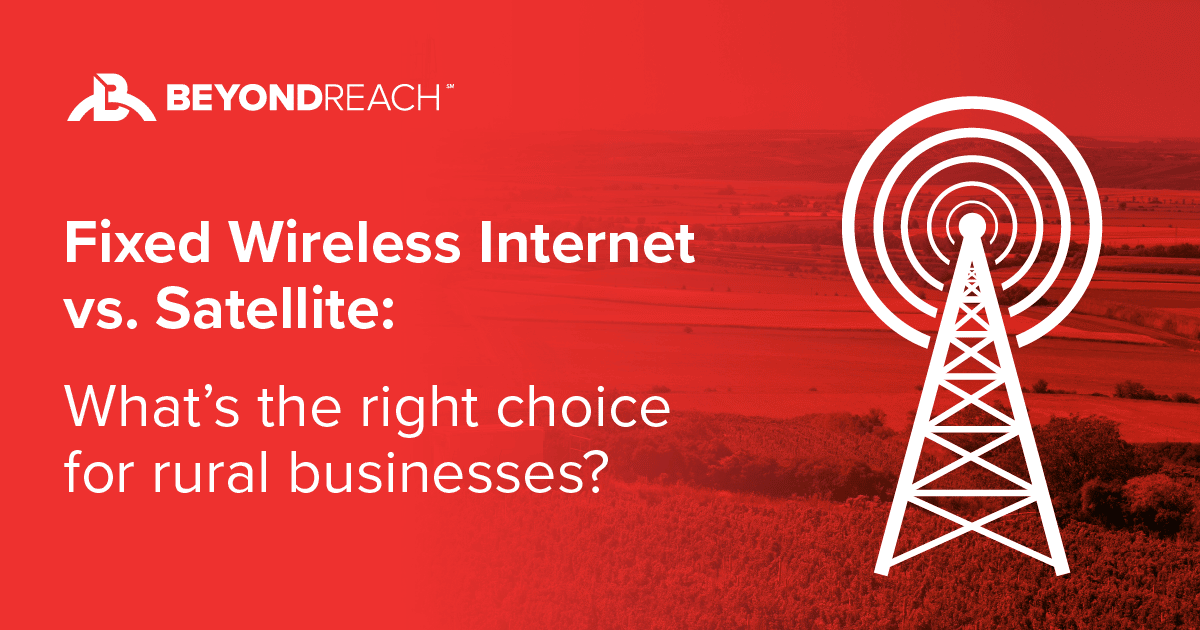Every business wants reliable, cost-effective internet options, but few consider fixed wireless as a possibility. Why? There are a few reasons, one being that the technology itself isn't as familiar as other connectivity types. Another is that reliability concerns run rampant when anything is wireless – especially in rural areas.
Fixed wireless broadband uses radio waves to provide internet connectivity in remote and rural areas where a DSL or optic fiber connection isn't feasible. It offers a wide array of advantages over other types of internet options. But there's a third crucial factor that dissuades business owners from considering this technology: weather.
Does weather affect WiFi signal strength when using a fixed wireless internet connection?
It's often the first question that comes to your mind whenever someone finds out how fixed wireless broadband works. Since the technology relies on wireless radio wave transmission between a base station and receiver, what happens when heavy rainfall, snow, heat waves, and other extreme weather conditions interfere with the radio wave internet signals?
In this blog, you'll learn if bad weather can affect your WiFi connection using fixed wireless – and why this technology is a more reliable connectivity option than you may have thought.
Does Weather Affect Internet Connectivity With Fixed Wireless?
First things first: inclement weather does have the potential to impact the speed and stability of your fixed wireless internet connection. For instance, heavy rains and high humidity levels could cause interference, thus reducing the speed. However, there are measures that fixed wireless internet providers implement to maintain connectivity despite adverse weather.
To begin with, any standard fixed wireless provider will thoroughly evaluate your area before starting the installation. They analyze the overall terrain and historical weather patterns. They also measure the distance between the base station and your office premises so they can select the right radio wave internet frequencies and carrier-grade equipment for your region.
Moreover, the height of transmitters in a wireless network base station is similar to that of cell towers. That means they remain well below the level of storm clouds in the sky. The base station always remains in the line of sight of a receiver installed on your building.
Radio wave internet signals could still be susceptible to interference from rain and moisture. The good news is that fixed wireless base stations use reliable antennas designed to counter the impact of rain fade.
Many fixed wireless internet providers also offer adaptive modulation – meaning the transmitter automatically adjusts the modulation rate and speed of radio waves to boost signal strength. It comes in handy to minimize the impact of interference because of rain, humidity, or extreme temperatures.
So, does weather affect internet when you use a fixed wireless network?
With the right provider configuring your connection, you'll be reasonably immune to bad weather's impact on your WiFi – even in rural areas.
Fixed Wireless Networks Vs. Other Internet Options: The Effect Of Bad Weather
How many times have you struggled with slow internet speeds when it's raining? If you're using a standard cable or DSL internet connection, it happens more often than you can likely determine.
Cable, DSL, fiber optic – all these technologies involve underground infrastructure that adverse weather could damage. And unlike satellite-based internet options, fixed wireless radio signals don't have to travel nearly 20,000 miles through the earth's atmosphere. That makes them less vulnerable to adverse weather events in neighboring cities or states.
Mitigating Weather Impacts On Fixed Wireless Broadband
Advanced Antenna Technologies
In addition to the measures discussed, fixed wireless providers are increasingly leveraging advanced antenna technologies, such as beamforming and MIMO (Multiple Input Multiple Output), to enhance signal resilience. Beamforming focuses the signal in a specific direction, reducing interference and improving performance in adverse weather. MIMO uses multiple antennas to send and receive more data simultaneously, enhancing robustness and reliability.
Backup Power Solutions
Power outages due to severe weather can disrupt internet service. Implementing backup power solutions like uninterruptible power supplies (UPS) and generators ensures continuous operation of critical infrastructure, minimizing downtime and maintaining connectivity.
Regular Maintenance & Upgrades
Routine maintenance and periodic upgrades of equipment are essential to ensure optimal performance. Regular inspections can identify and address potential issues before they escalate, and upgrading to the latest technology can improve resilience against weather-induced disruptions.
Community & Provider Collaboration
Building strong partnerships between the community and internet service providers can enhance preparedness and response to weather-related challenges. Joint efforts in infrastructure planning, emergency response, and information sharing can significantly mitigate the impact of adverse weather on connectivity.
BeyondReach Is The Fixed Wireless Internet Expert
If you're looking for reliable, affordable, and high-speed internet connectivity, fixed wireless is the way to go. While bad weather can affect WiFi signal strength on fixed wireless networks, this technology is more reliable than other internet options in remote and rural areas – especially since your fixed wireless provider will optimize the connection for your business.
BeyondReach is a fixed wireless service provider that can help your business achieve internet speeds you never thought possible, even in hard-to-reach locations. There is no job too complicated for us – that's our connectivity promise. Contact us today to see if a fixed wireless network is for you, and check out this comprehensive whitepaper to learn more about the benefits of using fixed wireless technology.


